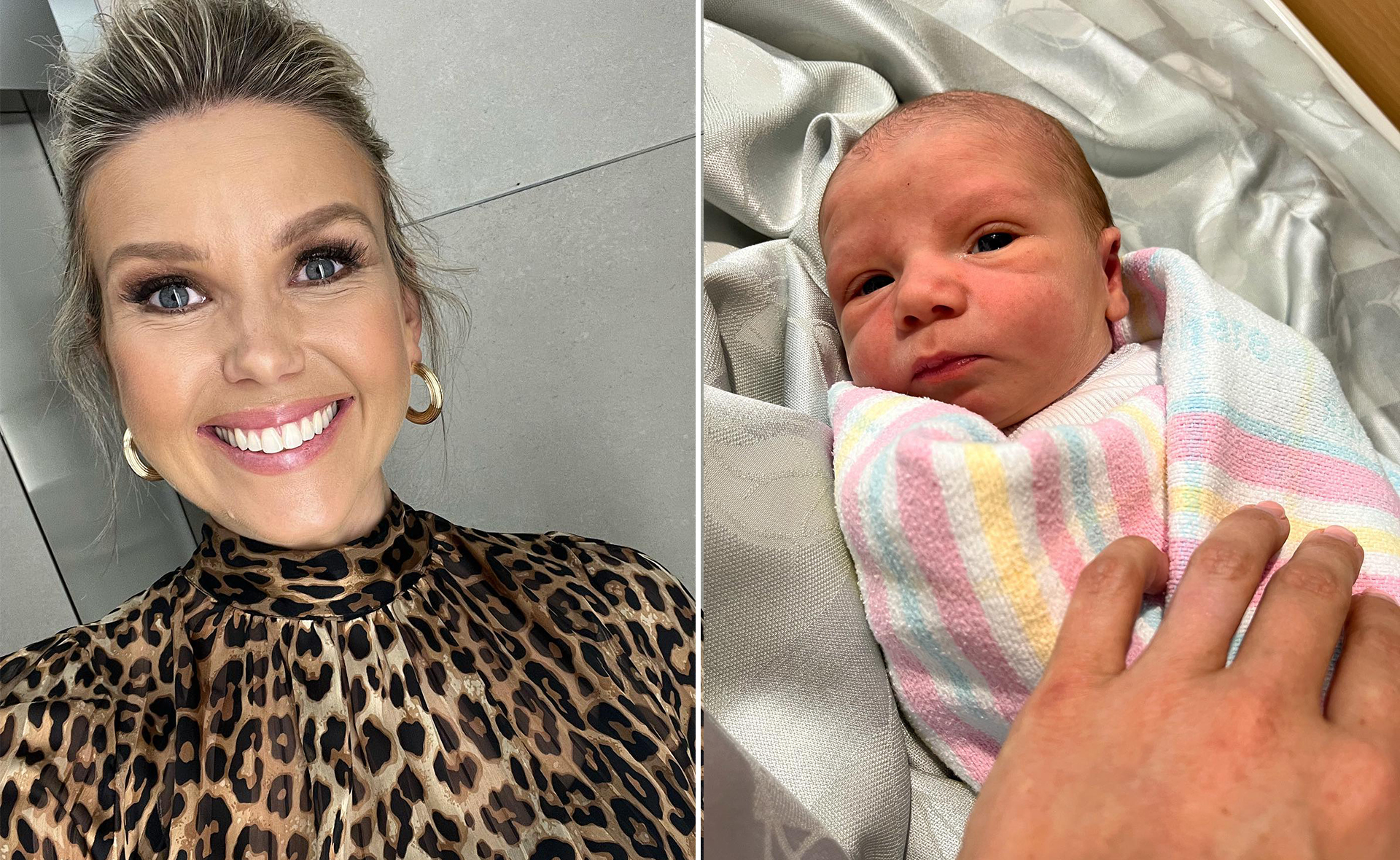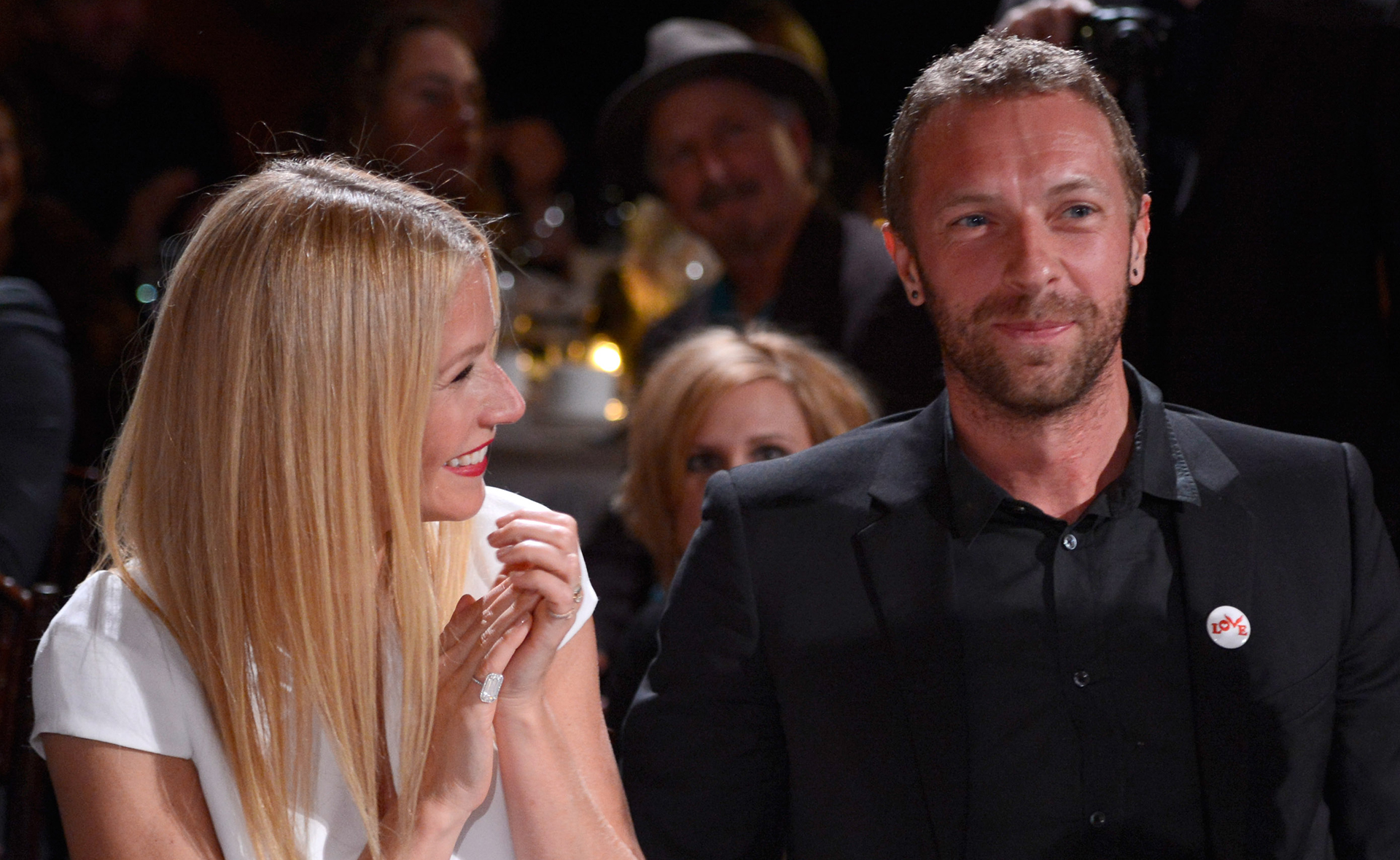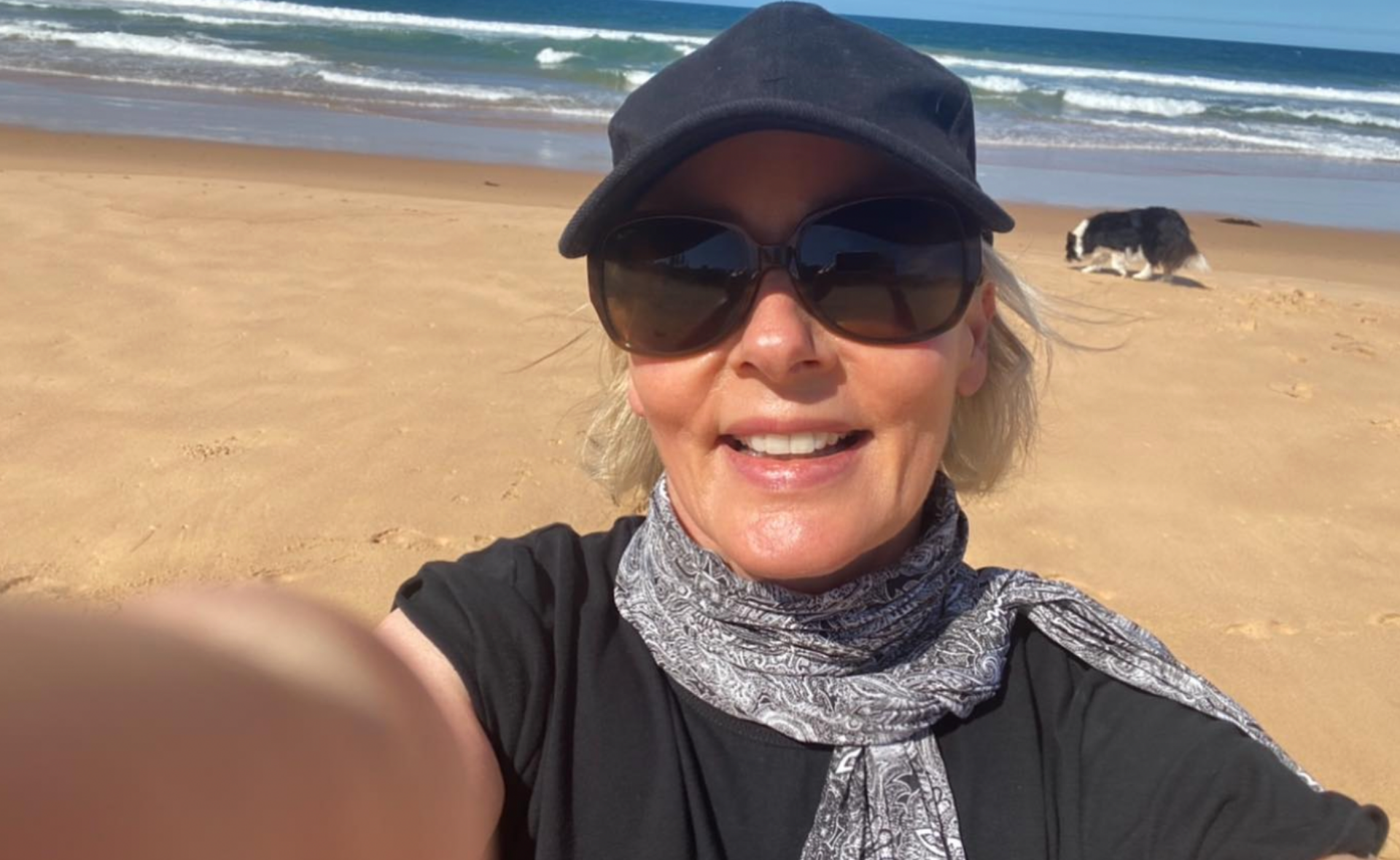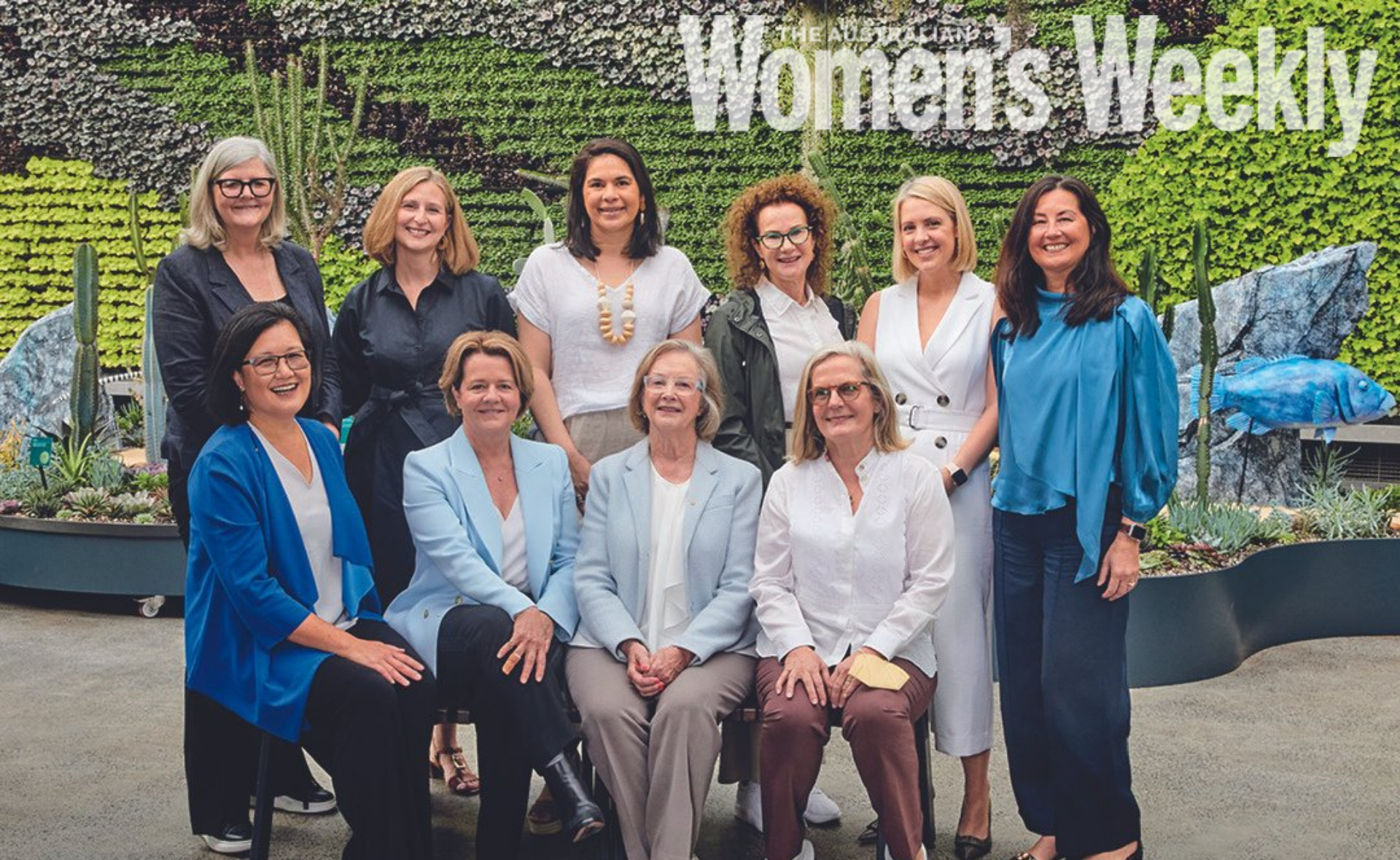The diversity of Jane Seymour’s career is mind-boggling – from Bond girl to mini-series icon, theatrical leading lady, Hollywood star and most recently, crime-busting granny.
She scored her first movie role at 17 and at 71 seems to be in her glorious prime, busier than ever.
That Jane has managed to stay at the forefront of an increasingly fickle profession is no mean feat. Her secret? A dynamic combination of what many directors picked as innate talent, intense hard work, courageous resilience and … well, yes … singular good looks.

Jane Seymour has had a career many actresses could only dream of.
(Photo: Corrie Bond)But it hasn’t been easy. Behind each triumph have been notable challenges and playing out in the background a personal life spanning four husbands (and divorces) plus her current beau, David Green, a #MeToo encounter with a producer that nearly sank her and a brush with death, going into anaphylactic shock while playing opera diva Maria Callas.
Along the way there have also been shocking discoveries about her parents’ wartime years that had a profound effect on her.
Since she flew into Australia the day before we meet she hasn’t paused for breath, which I quickly realise is how Jane rolls. At The Weekly’s exclusive photo shoot to promote her quasi-modern day Miss Marple in a fun new TV series called Harry Wild, which we’ll come to, she can’t wait to dive into the wardrobe of gowns hand-picked by our Style Director.

Jane reflects on her incredible career.
(Image: Instagram)Jane is in dress-up heaven, emerging an irrepressible ball of energy, eager to try every angle to secure the perfect shot.
Afterwards, in a free-wheeling interview, she settles back for a candid chat about what really makes her tick.
She admits she probably married too young – the first time and the second – but is proud that she has been in Playboy magazine three times with her clothes on – most recently aged 67!
She says she feels her late mother’s energy with her all the time and has loved being a mother and grandmother herself.
Mostly it’s clear that Jane Seymour is a survivor, driven by a positive attitude to everything that comes her way.
Let’s start with Harry Wild. You have starred in more than 30 TV series to date including the cult Dr. Quinn, Medicine Woman. This show feels like a new departure, a light-hearted murder mystery in which you play Harriet “Harry” Wild, a feisty professor who retires from academic life in the first episode and morphs into an amateur sleuth with troubled teen Fergus as her sidekick. What attracted you to the role?
Jane: I love the character. She’s so irreverent, a woman who takes her own life in her own hands. She does love her red wine, has quirky friends and is very serious about English literature, which she teaches.
But after doing it for a number of years she realises that most of her students are there letting Mummy and Daddy pay for them to go to uni while they party. So, one day she decides, “I’ve had enough, I’m off to do something else.”
Without giving too much away, Harry is mugged and that leads to her staying with her police detective son and sneakily looking at the files he has for a serial killer on the loose.
Jane: She’s bored so she looks into the case. But will her son listen? No. And is she always right? Yes … that’s what’s great about Harry.

“So there’s definitely elements of me in there.” Jane talking about her new role as “Harry”
(Photo: Corrie Bond)Is there any of you in Harry?
Jane: I would think so. When I first met the show’s writer, Dave Logan, we spent four hours together in a hotel bar talking. He loved my energy and I loved what he was doing with Harry and it all came together.
So there’s definitely elements of me in there. Apparently, I’m always correcting my children and people around me, I’ve done it my whole life and it irritates the living daylights out of my children [Katherine and Sean from her third marriage to David Flynn and twins Johnny and Kris from her fourth marriage to James Keach] … That’s very much a Jane thing!
Harry seems to represent what is, I think, a refreshing depiction of women of a certain age that pokes a stick at granny stereotypes.
Jane: This is the kind of woman a lot of women would secretly like to be and many are. Harry doesn’t care about what she wears or what she looks like. She’s much more interested in intellectual things, English literature, solving crime, and getting this young man [Fergus, who mugs her and then unwittingly becomes her partner in crime-busting] educated.
You first wanted to be a dancer.
Jane: I was turned down by The Royal Ballet because I didn’t have the legs. I got much further than I ever should have.
I danced with The Kirov at Covent Garden in Prokofiev’s Cinderella … I was en pointe, the whole thing. But then I injured myself and became an actress.
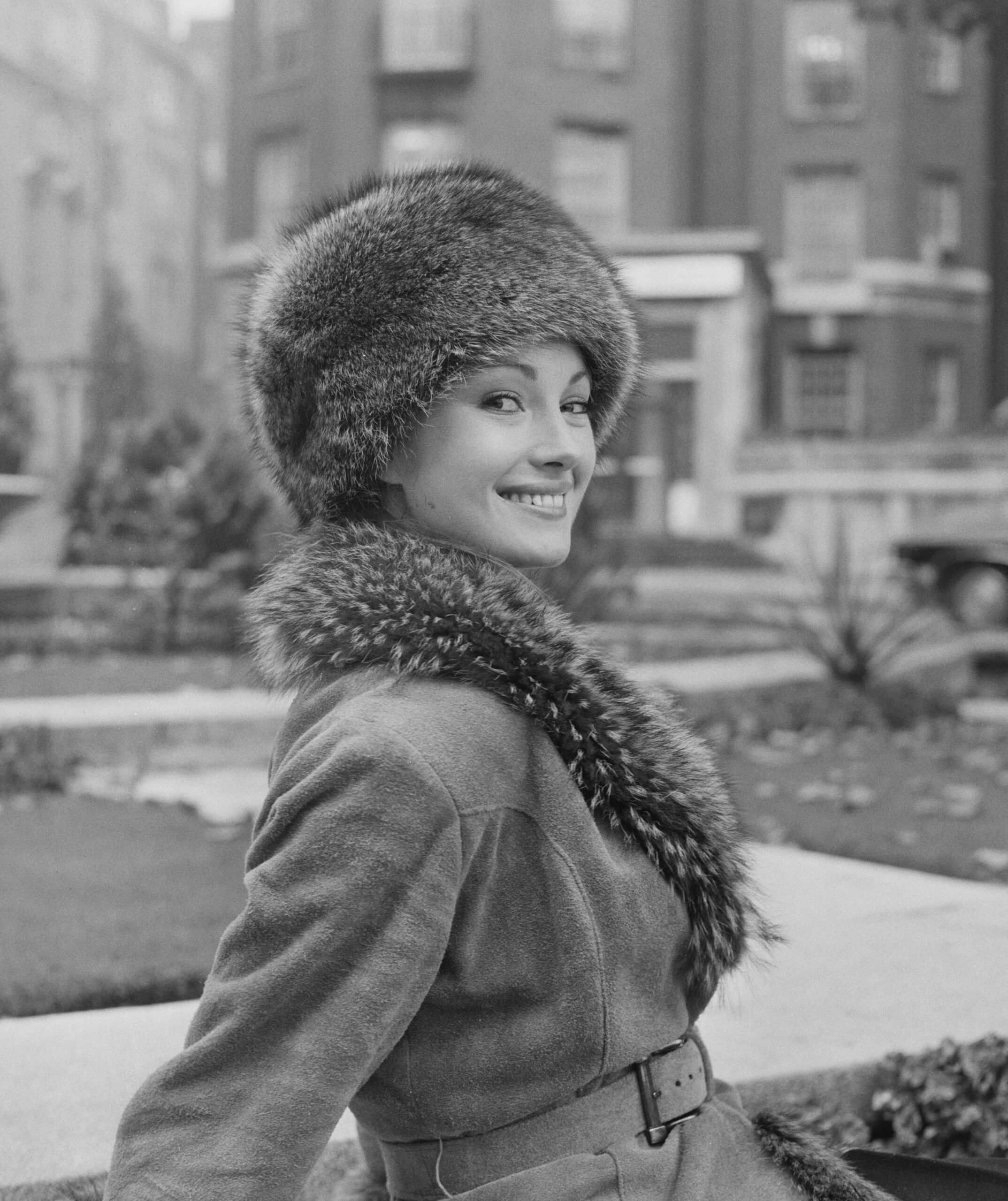
Jane as a young woman, circa 1972.
(Image: Getty)Just like that?
Jane: Well, at my performing arts school I did dance but also drama. I was living at home in Middlesex [England] and would commute to auditions. I did pantomime and they asked me to be the understudy to the leading lady. Then the choreographer said,
“Would you like to be in a film?”. There were 400 trying out. I got into the last 12 and director Richard Attenborough picked me to be a chorus girl – six or eight of us behind Maggie Smith in Oh! What a Lovely War.
It was Attenborough’s first days as a director; his agent was watching the rushes and he said, “Who’s that third from the left?” and signed me up.
Dame Maggie Smith?
Jane: I was in awe. I had one line with her and I will always remember Maggie turned to me one day and said,
“Darling, I don’t think you’re going to be very good in the chorus in the future”. I said, “Why not?” She replied, “You stick out!” I saw her years later and said, “Maggie, because of you I became an actress.”
What did your parents think?
Jane: Oh, the worst. They said, “No, you’re going to become a ballet teacher.” They didn’t believe I could do it. When I did, they couldn’t have been prouder.
It was through Oh! What A Lovely War that you met Attenborough’s son, Michael – your first husband.
Jane: It was, but I’d already met him. He’d come to my house when we had teenage parties, and he would always spend the whole time changing the music. I never really spoke to him, but then he was watching me when we were rehearsing with his father.
He said, “Hello, do you like the theatre and do you have your diary?” We started dating. I was 17 and still at school and he gave me a tiny citrine pre-engagement ring.
He basically wooed me, and his father became my mentor. We’d go on family holidays together, he with his family and me with mine and there was no question that at some point we’d marry. I’d never been with anybody else so he was it. To this day he’s one of my closest friends.
But the marriage only lasted a year.
Jane: We got married when I was 20 and then immediately after that I got the Bond film and then we like to say we got dialectically opposed, but actually he found someone else while I was gone playing Solitaire in Live and Let Die. I was devastated when he told me he’d been unfaithful.
I remember going to his father who said, “Darling, not everyone’s perfect”. So, I started going out with another man. He was actually one of Michael’s best friends.
We fell madly in love and then we got married. It also didn’t last very long – I was definitely too young for marriage in both cases – but the relationship lasted a long time, and continues to this day. When I’m in England I usually have lunch with ‘Geep’ [Geoffrey Planer] and Michael. The three of us are very close.
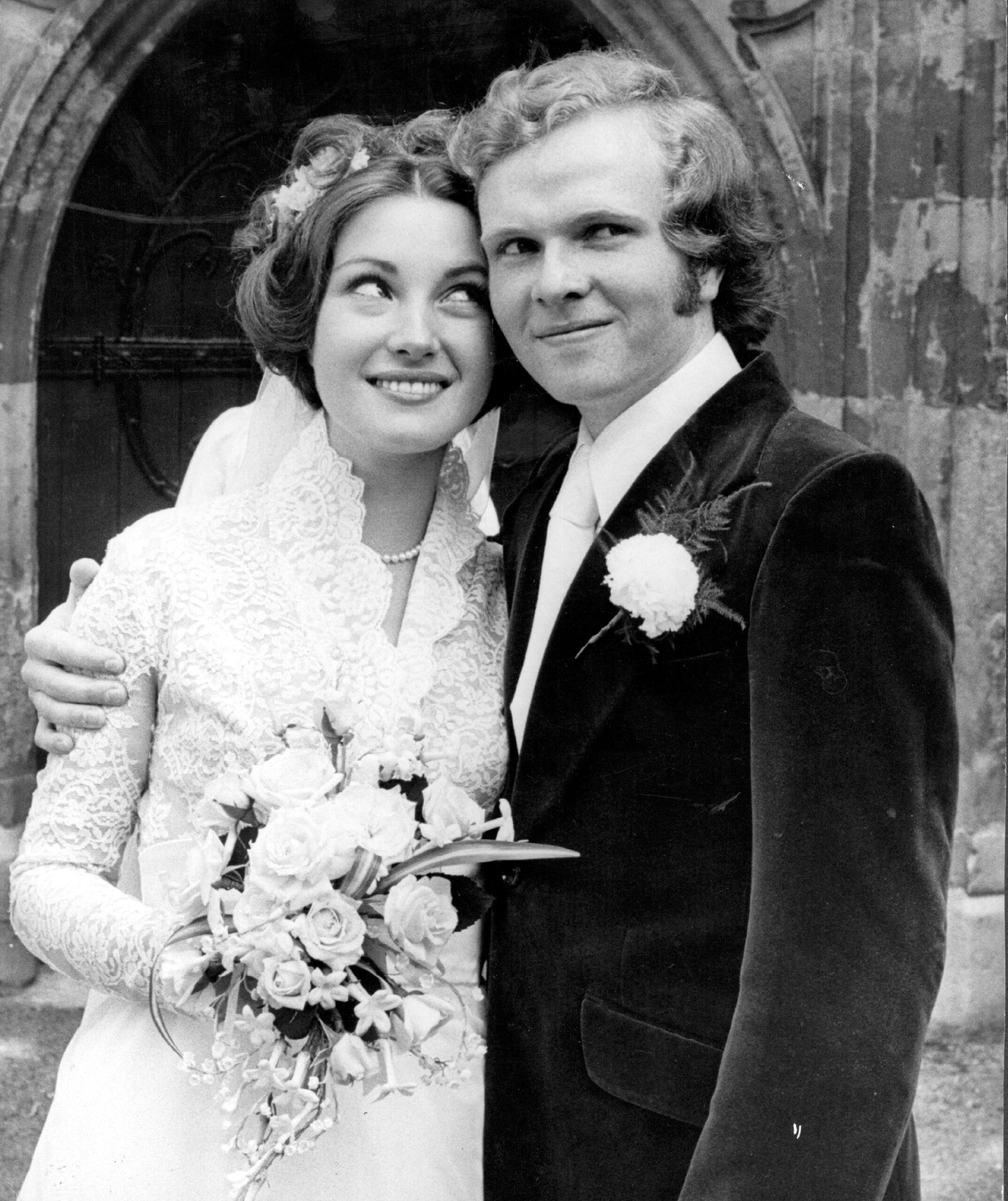
Jane admits she probably married too young – the first time and the second.
(Image: Getty)Did the Bond film launch your career?
Jane: It was immediate. I was a Bond girl and everyone knew me and still it’s what people always talk about.
The famous photographer Terry O’Neill was assigned to write a story about how they found the Bond girl to run with his amazing photographs. We spent three days together and he said, “Don’t let anybody else take your picture, I’m going to turn you into ‘Rackle’.” I said, “Rackle?” He said, “Raquel Welch” [who famously appeared on-screen in a fur bikini in One Million Years B.C.]. “I made Raquel Welch, and I’m going to make you a big star.” I said, “Terry, it’s very kind of you but I don’t really see myself as ‘Rackle’.”
Of course, he had to write something, other than that I was a boring girl from Middlesex who wanted to do ballet, so he said that I loved to run naked through tall grass! Well, my father read this in the paper and, being a doctor, he said,
“Darling, I don’t recommend you do that, because you could get cut very badly by the grass.”
From then on, I had to live down all this ridiculous stuff that Terry O’Neill had written about me, which was absolute nonsense.
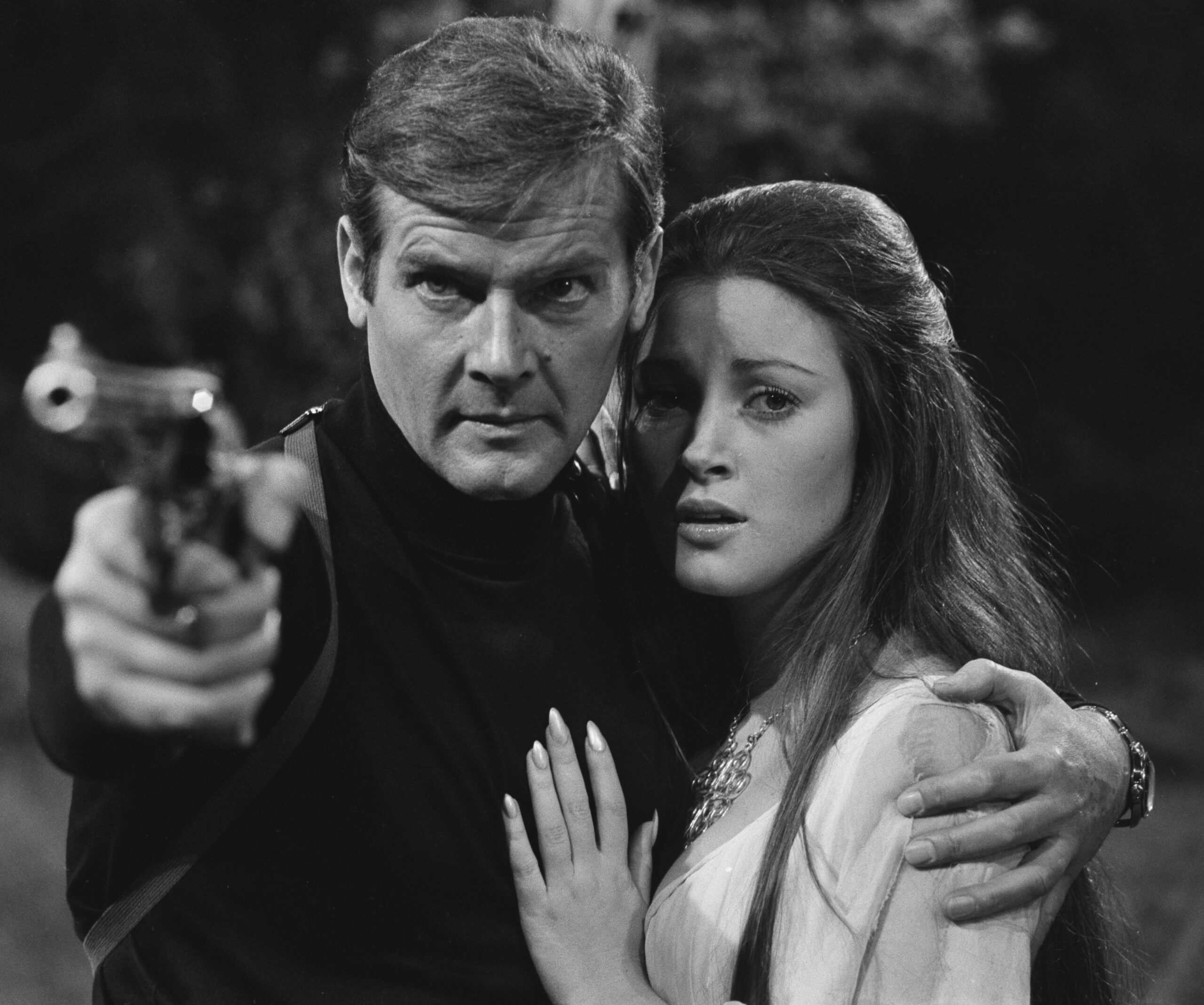
Jane as she appeared in the Bond film ‘Live And Let Die‘ in 1973.
(Image: Getty)Your career soared after that. Do you have a favourite role?
Jane: East of Eden – I played from age 13 to 50 in that, and everything in between. I won a Golden Globe for Best Actress. But I think War and Remembrance, a mini-series set in Hitler’s Europe, was the most meaningful to me.
Because it was about the Holocaust?
Jane: Because of my family. I was shooting in Auschwitz. Branko Lustig, who went on to produce Schindler’s List, was the first assistant director.
He’d survived Bergen-Belsen and Auschwitz with his mother and was adamant that he wanted it to be the way it really had been. He had sent out an invitation to all the synagogues in Europe saying, “If you or anyone you know survived the camps and you want to make sure, because you’ve had the blessing, as I have, of surviving, that this never happens again, please come be in the movie.”
I was surrounded by people with their camp tattoos, their yellow stars, and with their haunting. It was the most unbelievable experience.
For me it was a sense of ‘there by the grace of God …’ because although my mother wasn’t Jewish, my father was the son of Polish Jews even though he never practised. He was stationed in South Africa with the British Royal Air Force during the war, as a doctor, and then after the war he brought penicillin to Belgium.
Then he was asked to go and help open the gates of Bergen-Belsen, where he had lost a number of his cousins and relatives.
WATCH: Schindler’s List remastered trailer. Story continues after video.
What did your parents think?
Jane: They wanted to come on set to Auschwitz. I’ll never forget it. We were filming the selection process. It was horrendous. We had people dressed as kapos and Nazis with dogs and it was the middle of the night at the real Auschwitz train station.
At 3am my mother said, “I’m ready to go back.” I said, “Of course, you don’t want to be here.” She said, “No, I want to go back to Indonesia.”
She had never said this before. My mother – Mieke Frankenberg – was a Dutch protestant and after she married, aged 20, moved to Indonesia, then a Dutch colony, to live on a tea plantation. She lived in a jungle and her husband was very abusive. She confided in a friend who advised her to run.
Then, when the war broke out soon after, she stayed to support her girlfriend who was very pregnant and they were both captured and imprisoned in internment camps.
How much did you know about her wartime trauma?
Jane: My father said that my mother used to wake up in the middle of the night screaming, terrified that she was being attacked by the Japanese. But she never really talked about it.

“I was a Bond girl and everyone knew me and still it’s what people always talk about.” Jane on one of her career-defining roles.
(Photo: Corrie Bond)Did you take her back to Indonesia?
Jane: Yes. We didn’t know where she’d been in the camps but she has this amazing book, which we still have, which she’d somehow hidden in her mattress. It has the most beautiful paintings and drawings by artists in the camp. They are of her and her friends in the camp. It’s the most valuable thing in our family.
We went to Bandung [West Java] and incredibly we found the house where my mother used to live with its tennis court. Then we drove and we found two of the three camps. We saw her processing it right in front of us as we visited the places where her friends had died and where she had tried to catch flying ants for protein to stay alive. She was weeping.
She always told my sisters and I that in life everyone has challenges and she didn’t want to feel sorry for herself or tell anyone about what she’d endured. But it haunted her.
She taught us about acceptance. There’s nothing harder to do, but if you can open your heart and reach out to help someone else, it gives you purpose and when you have purpose you can survive and move on in your life.
How did that affect you?
Jane: It’s become my mantra and the source for my Open Hearts Foundation, which engages volunteers all over the world. I am also a painter and painted hearts for the Women’s Heart Health initiative. I came up with this image of two hearts that connected. My hope and dream is that it becomes a universal symbol of giving and receiving love.
Recently, you talked about an historic traumatic experience with a powerful Hollywood producer who invited you to his house on the pretence of discussing a screen test, expecting to have sex with you.
Jane: I haven’t named him and he’s dead now. For me the point wasn’t that I’d point a finger, it was to say that I’d made a choice – to leave – and that choice had impacted my life emotionally so much so that I gave up acting for a whole year.
I was terrified. He threatened me. He said that if I ever told anyone he’d destroy my career anywhere in the world. My agent and another producer knew I was going to his house to watch this screen test.
I had to lie to them and say that I had chosen not to go at the last minute. Both of them independently said to me, “Thank goodness you didn’t go, he’s got a bit of a reputation.”

These days Jane dedicates much of her time to her Open Hearts Foundation.
(Image: Insagram)Tell me about Playboy magazine.
Jane: I was never naked. And I wasn’t paid. You know, the first time I had no choice. Playboy printed photographs from James Bond. The second time I thought it would be fun to show that you could be sensual without having to reveal. Then four years ago I was asked to do it again.
You were 67.
Jane: The photos are great. Everyone got so excited about it! But you can see a lot more of me if you just see me on the beach than you ever would in any of the Playboys.
You’re 71, working more than ever. Did you imagine it would be like this?
Jane: Never. I think what’s happened is I’ve inadvertently been reimagined. I’ve never played just one thing. I think that’s the trick. I remember when I did Amadeus on Broadway with Sir Peter Hall and I said, “Maybe I should go get some US acting lessons.”
He said, “No, you must promise me you won’t do that.” I said, “Why?”
He said, “I hired you because you’re a dangerous actress. You make choices that no one in their right mind would think of, but you do them with such confidence and authenticity that they work. You look like a leading lady but you’re actually a character actress.” And I think what’s happened is I’ve come into my own and now I can do whatever I want.

“That choice had impacted my life emotionally so much so that I gave up acting for a whole year.” Jane on her traumatic #MeToo experience.
(Image: Getty)You’ve been married four times. Is another wedding on the horizon?
Jane: No. I don’t think my partner, David, deserves to have the number five written next to his name. He’s a wonderful man and he was married for as long as I was to a woman called Jane! He has children similar ages as mine. We all get along very well.
Is he the one? Is there such a thing?
Jane: I don’t know if there is. This is definitely the right one for now. Does he want me tomorrow is another question because I’m spiky. He’s calm and I’m a bit more of a racehorse.
At 71 do you feel different from your younger self?
Jane: Totally. I am finally getting to be the teenager that I wanted to be. I was always very serious and focused on trying to do what I thought other people wanted me to do. Now, I dare to just let it happen.
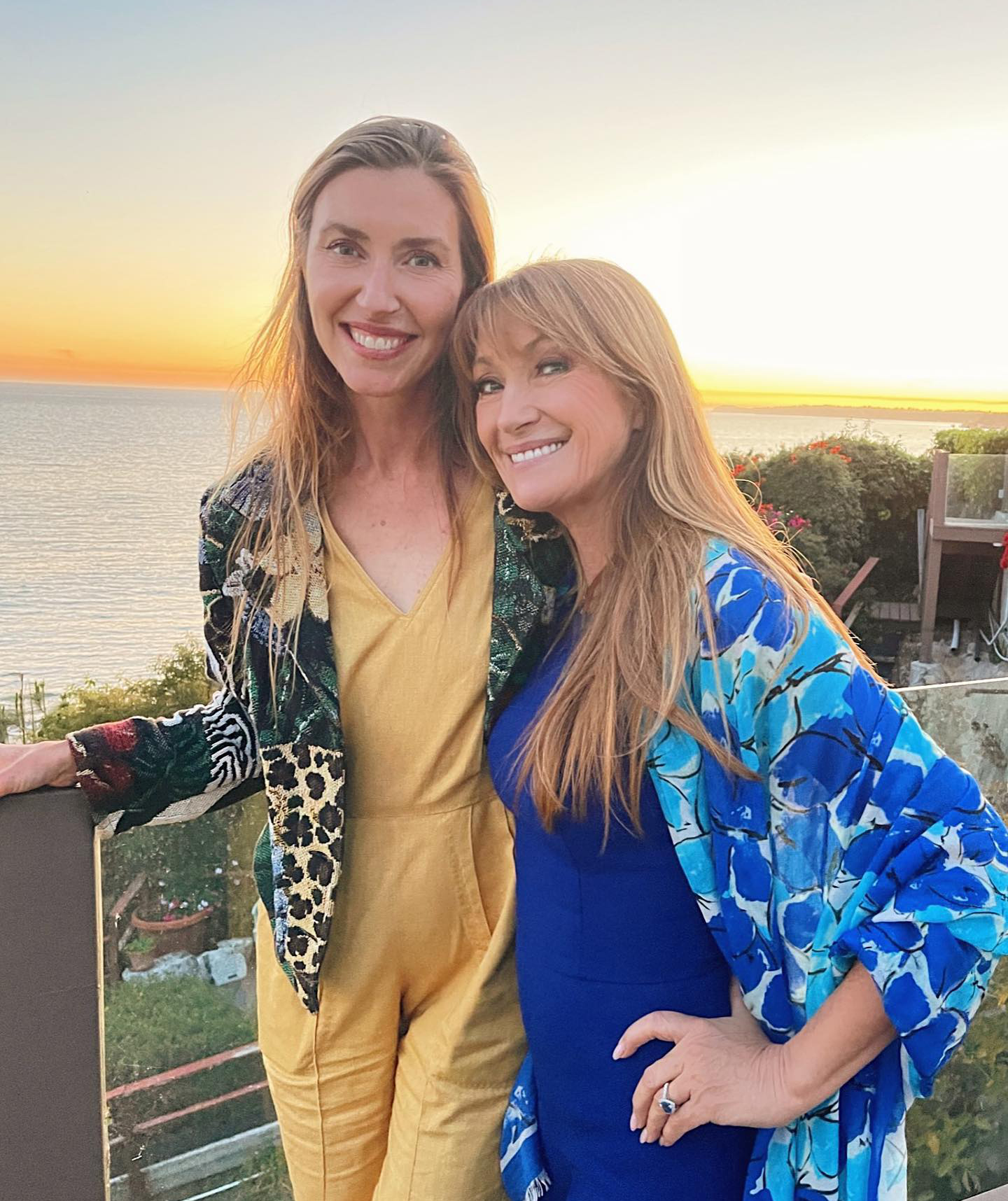
Jane smiles with her daughter.
(Image: Instagram)Your mum died in 2007, but I sense she is still with you.
Jane: She manifests herself in feathers. It’s so weird. When she died, age 93, she’d had a stroke. My sisters would sit next to her each day in this care home. One day they went to get a coffee and when they returned she’d gone. Where they’d been sitting was one single white feather.
You weren’t allowed to have feathers in that home! Then they called the cleaning lady who was at my mother’s house and she said, “Half an hour ago, when your mum passed, I was hoovering and underneath the portrait Jane did of her mum is a single white feather!”
Since she died every time something major happens or there’s a decision to be made, there’s a feather. I believe it’s my mother trying to talk to me, to tell me everything’s okay.
Harry Wild is on Acorn TV on April 4.
You can read this story and many others in the April issue of The Australian Women’s Weekly – on sale now

